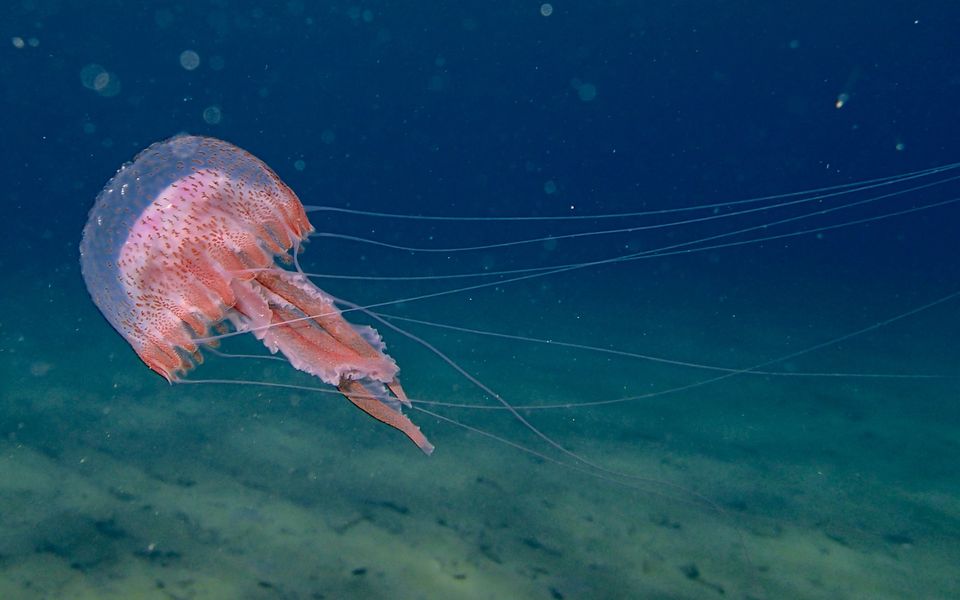The Mediterranean Sea is experiencing significant warming due to climate change, with surface temperatures increasing at a rate of 0.041°C per year over the past 40 years. This warming trend deeply affects marine ecosystems and human livelihoods.
Key findings from recent studies reveal:
-
Phytoplankton Changes: Rising temperatures are altering phytoplankton composition, favoring smaller species and reducing chlorophyll levels, disrupting the marine food chain.
-
Decreased Fish Stocks: Fish populations are under stress, with a 16% drop in catches in Greece between 2020 and 2022. Projections suggest declines in fisheries production by 2.8-5.3% by 2050 under low emissions scenarios.
-
Invasive Species: Warmer waters facilitate the spread of invasive species that threaten native marine life and disrupt ecosystems.
-
Impact on Marine Mammals: Species like dolphins and sea turtles are altering their breeding and distribution patterns, becoming more susceptible to diseases.
-
Jellyfish Blooms: Increased jellyfish sightings are linked to warmer waters and overfishing, which reduces their natural predators.
-
Seagrass Decline: Important habitats like Posidonia oceanica meadows face mortality and reduced biomass, impacting carbon storage and oxygen production.
- Aquaculture Vulnerability: Aquaculture suffers from high mortality rates due to heat stress, with predictions of significant financial losses due to extreme temperature events.
Overall, the changes in marine ecosystems are leading to serious socio-economic impacts, particularly in the fisheries and aquaculture sectors, affecting around 600,000 jobs in the Mediterranean region.


